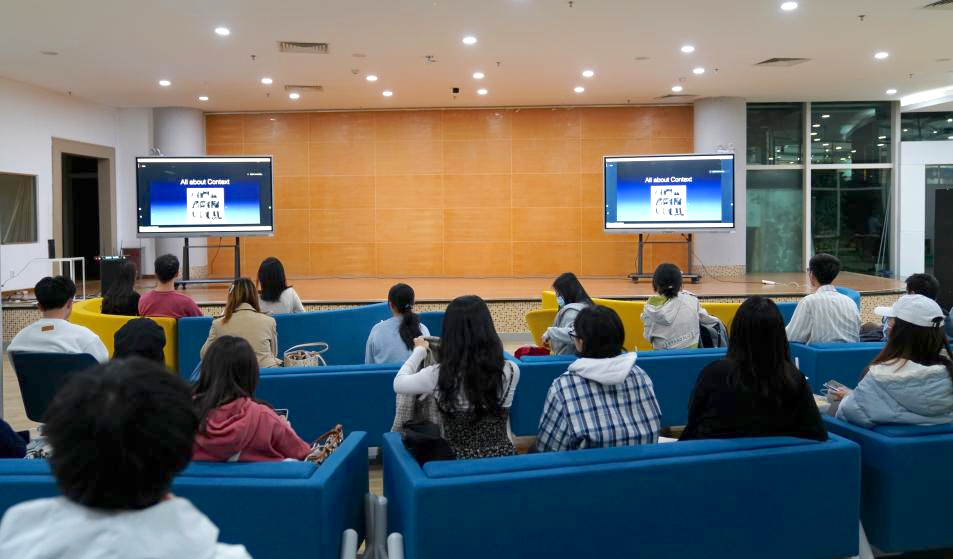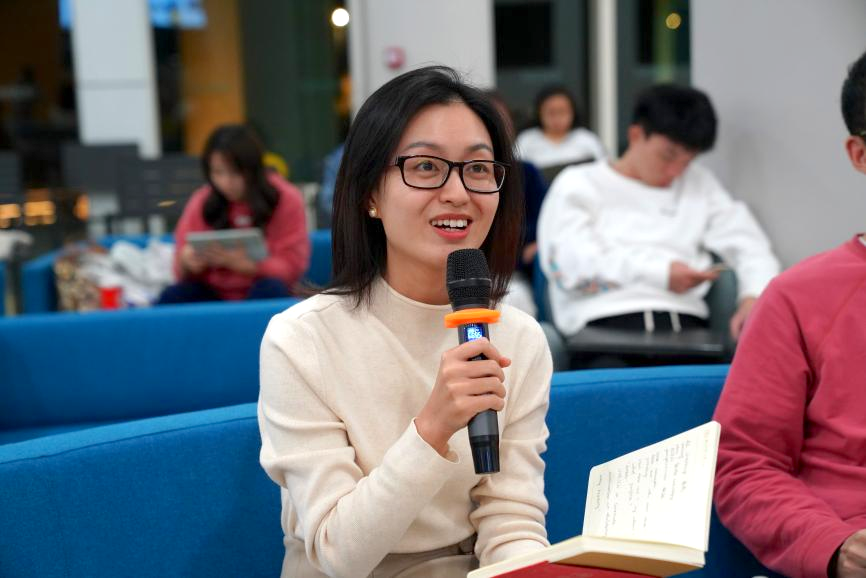On the evening of November 25th, the fourth Future Education International Salon, hosted by the Future Education Institute, was successfully held in the A101 Lecture Hall of the Li Jiao Building. Professor Tore Hoel, a senior researcher at Oslo City University, was invited by the Intelligent Education Research Center to give a wonderful lecture titled "Challenges for education under the AI revolution: A pedagogical justification for focusing on AI and ethics" for teachers and students. The salon event was hosted by Professor Yuan Li, the head of the Intelligent Education Research Center, and over 100 teachers and students participated both offline and online.
Firstly, Professor Hoel pointed out that with the advent of the digital age, artificial intelligence plays an increasingly important role in learning, work and social life, and the issue of who can use student data has become an unavoidable social problem. Professor Hoel gave an example, stating that smart learning lamps can observe students' learning conditions and provide timely feedback to parents, which is convenient for parents to understand at any time. However, if this data is used by companies for commercial purposes, it will involve privacy issues, which should be taken seriously.

Furthermore, Professor Hoel pointed out that there are various different positions regarding the management and use of data. He stated that data management should not only focus on commercial interests, but also respect everyone's different views on privacy. Different attitudes will affect the management of data use, such as commercial institutions viewing data as company assets, while students, teachers, schools, local governments, and educational institutions have different attitudes towards data use. Professor Hoel stated that he strongly agrees with the viewpoint of "Contextual Integrity" proposed by Canadian scholar Helen Nissenbaum.
Then, Professor Hoel stated that AI literacy has become one of the current social hot issues, and experts from various countries and UNESCO are actively researching the ethical issues of AI, hoping to promote the healthy development of AI education. He pointed out that not everyone is aware that they are interacting with AI systems when they provide personal data to them via their phones or computers. AI is like a "black box," and education needs to play a good role in teaching students to open it correctly, understand concepts such as data privacy, AI ethics, explainable AI, and AI literacy. Professor Hoel then introduced the development of AI education in Finland, the United States, Japan, and other countries. He highly praised China's efforts in promoting AI education, but at the same time, he also pointed out the current ethical and moral content of AI education in China is relatively lacking.

Finally, Professor Hoel pointed out that AI literacy is not a single ability, and the skills that AI education needs to cultivate include basic literacy, computational skills, programming and digital skills, media and information literacy, critical and creative thinking, team collaboration, communication skills, social and emotional abilities, and judgment abilities regarding AI ethics and morality. The cultivation of AI literacy spans across different disciplines, and what education needs to do is to appropriately integrate the cultivation of different abilities into the curriculum.
During the Q&A session, Yan Yujie, a student majoring in English (Teacher Education) in the 2021 cohort, consulted Professor Hoel on his views on personal data being used by commercial companies for business activities. Professor Hoel believes that we need to pay attention not only to where personal data is used, but also to whether it should be utilized. In the digital society, college students should control the right to use personal data and be the master of their own data. At the same time, he also stated that schools should establish corresponding information management systems, and some universities in Norway and the United States have already established such regulatory systems.

Ms. Jin Yu, a teacher from the Future Education College, expressed her doubts, "Is the impact of AI on education positive or negative? Is it really necessary for elementary school students to learn AI-related courses?" Professor Hoel stated that AI courses are auxiliary to teaching, aiming to help students improve their abilities in all aspects and cultivate their AI literacy. The development of science will inevitably bring impact on the traditional methods of education and teaching. It can provide more dynamic ways for the dissemination of knowledge, enabling students to better understand and master new knowledge, and promoting interaction between teachers and students.

Ms. Gu Peidi from the Future Education College further asked Professor Hoel to explain the interpretability of artificial intelligence and why it is particularly important, through an online question. Professor Hoel stated that interpretability is the key to artificial intelligence. If machine learning provides a solution and no one knows how it was formed, it is very dangerous. Interpretability is the basis for the widespread application of artificial intelligence technology. This is not only a technical issue but also an educational issue. Education can enable more people to understand the basic principles and various tools of artificial intelligence, and even participate in the development and design of intelligent technology and solutions that meet the needs of the public.
The salon event ended successfully with enthusiastic discussions.



 Last Page
Last Page

 Phone:0756-3621121
Phone:0756-3621121
 Email:ccie@bnu.edu.cn
Email:ccie@bnu.edu.cn